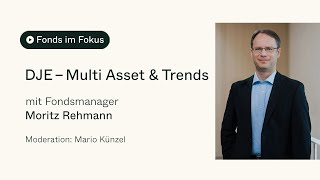Found 1,867 search results for keyword: label
No, “Science” Has Not Proven Mises Wrong on Socialism
In response to the many shortcomings of the Soviet Union, Mao Zedong’s China, and Venezuela, the refrain, “It wasn’t real socialism,” has emerged as a rallying cry among apologists of socialism. Some readily admit the failures of these regimes and attribute the failures to capitalism rather than socialism. Some refuse to recognize the failure whatsoever; they see these experiments as genuine instances of “real socialism” and perceive them to be...
Read More »
Read More »
Strukturelles KI-Wachstum trägt die Märkte: Marktausblick mit Stefan Breintner und Markus Koch
Marketing-Anzeige: #aktien #geldanlage #investieren
Bisher lieferte 2024 den meisten Anlegern Grund zur Freude. Die Wachstumsstory im KI-Bereich ist intakt, die US-Konjunktur erweist sich robuster als gedacht. Was heißt das für die nächsten Wochen?
Im Marktausblick diskutieren wie gewohnt Stefan Breintner, Research-Leiter der DJE Kapital AG und Wall-Street-Experte Markus Koch, diese und weitere Themen:
✅ Könnte die Inflation wieder...
Read More »
Read More »
How the US Regime Subsidizes Immigration—both Legal and Illegal
In recent months, stories from both the legacy media and the independent media have continued to pile up on how undocumented foreign nationals—also known as "migrants" and "illegal aliens"—are able to take advantage of a vast network of taxpayer funded benefits in daycare, medical care, housing, and more.
Read More »
Read More »
Is Taiwan a De Facto Sovereign Nation or a Province of the PRC?
It is a running gag among the pro-Taiwan camp that if you were to ask ordinary folks about Taiwan five years earlier, most could not locate Taiwan on a map. At the time, matters relating to China were mainly debates about Donald Trump’s protectionist stance, as relations between Taiwan and China didn’t receive the attention many would warrant in the face of a potential war.
Read More »
Read More »
Strukturelles KI-Wachstum trägt die Märkte: Marktausblick mit Stefan Breintner und Markus Koch
Marketing-Anzeige: #aktien #geldanlage #investieren
Bisher lieferte 2024 den meisten Anlegern Grund zur Freude. Die Wachstumsstory im KI-Bereich ist intakt, die US-Konjunktur erweist sich robuster als gedacht. Was heißt das für die nächsten Wochen?
Im Marktausblick diskutieren wie gewohnt Stefan Breintner, Research-Leiter der DJE Kapital AG und Wall-Street-Experte Markus Koch, diese und weitere Themen:
✅ Könnte die Inflation wieder...
Read More »
Read More »
Vilfredo Pareto, Pessimistic Follower of Molinari
One prominent person rarely associated by scholars with the Bastiat-Ferrara laissez-faire school was the eminent sociologist and economic theorist, Vilfredo Federico Damaso Pareto (1848-1923). Pareto was born in Paris into a noble Genoan family. His father, the Marchese Raffaelle Pareto, a hydraulic engineer, had fled Italy as a republican and supporter of Mazzini. The senior Pareto returned to Italy in the mid-1850s and gained a high rank in the...
Read More »
Read More »
USD/CHF retraces its recent gains on risk appetite, inches lower to near 0.8730
USD/CHF attempts to recover its recent gains registered in the previous session. The USD/CHF pair edges lower to near 0.8730 during the European hours on Thursday. The improved risk appetite weakened the US Dollar (USD) against the Swiss Franc (CHF). Additionally, the subdued US bond yields are contributing downward pressure to undermining the Greenback.
Read More »
Read More »
Fonds im Fokus: Moritz Rehmann über den DJE – Multi Asset & Trends
Die Multi-Asset-Strategie hat mit dem Zinshoch wieder ihre volle Berechtigung, und man kann aus dem vollen Anlageuniversum schöpfen. Im Video erklärt Fondsmanager Moritz Rehmann, welche Anlagethemen er im aktuellen Umfeld als vielversprechend einstuft.
Die hohe Flexibilität des Fonds ermöglicht es, die Allokation schnell an die Marktlage anzupassen, und bietet somit ein spannendes Chance-Risiko-Profil.
► Webseite: https://www.dje.de
► Podcast:...
Read More »
Read More »
A Short History of the Right to Self-Determination
In his 1927 book Liberalism, the radical classical liberal and economist Ludwig von Mises took a strict and expansive view in favor of secession. Specifically, he noted that respect for the right of self-determination required extant states to allow the separation of new polities seeking secession. He writes:
The right of self-determination in regard to the question of membership in a state thus means: whenever the inhabitants of a particular...
Read More »
Read More »
Argentina and the Watching World
Javier Milei has already been sworn in as the new president of Argentina and faces a Promethean challenge, having inherited a country riddled with debt and inflation. Balancing the books is going to be his priority before he can implement most of his innovative ideas, and that is going to cause temporary pain as he has clearly admitted. He does not seem keen on wasting time though, and in his first weeks we have seen a historic revocation of more...
Read More »
Read More »
Secession’s Opponents Embrace Colonialism and “Enlightened” Central Governments
The idea of secession for some regions of the United States—sometimes simplistically called "national divorce"—has increasingly been mentioned as a way to deal with the apparent growing divide between what are crudely called "red states" and "blue states." Polls suggest that perhaps a third of the American population "indicated a 'willingness to secede'"
Vehement opposition to the idea remains plentiful,...
Read More »
Read More »
Interview: Dr. Jens Ehrhardt sieht einen “Stock-Picking Market”
#Magnifivicent7 #China #Japan
Marketing-Anzeige: Im Interview mit Smartes Geld spricht DJE-Gründer und Vorstandsvorsitzender Dr. Jens Ehrhardt, warum er aktuell einen “Stock-Picking Market” sieht und warum er amerikanische Staatsanleihen weiterhin attraktiv findet.
Außerdem: warum Japan sein Favoriten-Aktienmarkt ist.
► Webseite: https://www.dje.de
► Podcast: https://spoti.fi/3AaB1mr
► Impressum: https://www.dje.de/impressum/
Seit über vier...
Read More »
Read More »
Legacies of Injustice and Racial Inequality
This article is a revised version of a talk given at the Oxford University Mises Society on January 16, 2024. The talk drew upon themes discussed in David Gordon and Wanjiru Njoya, Redressing Historical Injustice: Self-Ownership, Property Rights and Economic Equality (Palgrave Macmillan, 2023).
Supporters of free market capitalism are often thought, wrongly, to be unconcerned about human well-being. On the contrary, it is precisely because we are...
Read More »
Read More »
The United States Is a Colonial Empire, and an Extremely Successful One
For those who remember their high school textbooks, the issue of America's imperial history is very clear cut. American imperialism, the textbooks told us, was that fairly brief period in American history that lasted from 1898 to 1945. This was the period during which the United States acquired a number of overseas territories, including the Philippines and Puerto Rico, among others. The era of imperialism, we are told, ended in 1945 when the...
Read More »
Read More »
Climate Deniers Deny Socialism. That’s Why the Regime Hates Them.
Free markets is an unambiguous term, which implies a lack of inappropriate government intervention as consumers and firms pursue their own interest in a competitive environment. (my emphasis)
—Clifford Winston, “This Economist Really Loves Free Markets”
Inappropriate government intervention is a line government finds easy to cross, much like the Constitution’s “general welfare” clause. The latter was never intended to be a provision of infinite...
Read More »
Read More »
“Humanitarianism” as an Excuse for Colonialism and Imperialism
Spreading civilization and human rights has long been used as an excuse for state-building through colonialism and imperialism. This idea dates back at least to early Spanish and colonial efforts in the New World, and the rationale was initially employed as just one of many. The importance of the conquest-spreads-civilization claim increased, however, as liberalism gained ground in Europe in the nineteenth century. Liberals were more skeptical of...
Read More »
Read More »
Marktausblick mit Stefan Breitner und Markus Koch
Marketing-Anzeige
Die Konjunktur, Zinssenkungen und die Aktienmärkte
Die Börse in 2024 wird voraussichtlich stark von Wahlen in verschiedenen Ländern, aber besonders von der US-Wahl beeinflusst werden. Das zweite große Thema ist, wann die erwarteten Zinssenkungen in den USA und Europa kommen werden und wie viele Schritte wir sehen werden. Aktuell werden fast 6 Zinsschritte eingepreist.
Im Marktausblick-Dialog diskutieren Stefan Breitner,...
Read More »
Read More »
How to Free Ourselves from Government Money (Part III)
To save our economy from destruction and from the eventual holocaust of runaway inflation, we the people must take the money-supply function back from the government. Money is far too important to be left in the hands of bankers and of Establishment economists and financiers. To accomplish this goal, money must be returned to the market economy, with all monetary functions performed within the structure of the rights of private property and of the...
Read More »
Read More »
Zwei Perspektiven für 2024 – DJE-plusNews Januar 2024 mit Mario Künzel
#börse #zins #notenbank
Das Börsenjahr 2023 ist voller Euphorie zu Ende gegangen, aber nun stehen wir vor der großen Frage, ob diese auch 2024 anhalten wird.
Deshalb wagen wir im aktuellen DJE-plusNews-Video mit Mario Künzel einen Blick in die Glaskugel und skizzieren zwei verschiedene Szenarien: Die Weltkonjunktur schwächt sich ab, und verhindert eine Börsenaufschwung – oder der Abschwung bleibt aus und die Zinssenkungen kommen später als...
Read More »
Read More »
Switzerland marks start of China’s ‘high-level exchange’ with Europe
Chinese Premier Li Qiang is visiting Switzerland this week. The official state visit by China’s second highest ranking official signals a renewal in Sino-Swiss ties and the kick-off of his “high-level exchange” with Europe. Here’s what you need to know about official Swiss-Chinese relations.
Read More »
Read More »





































